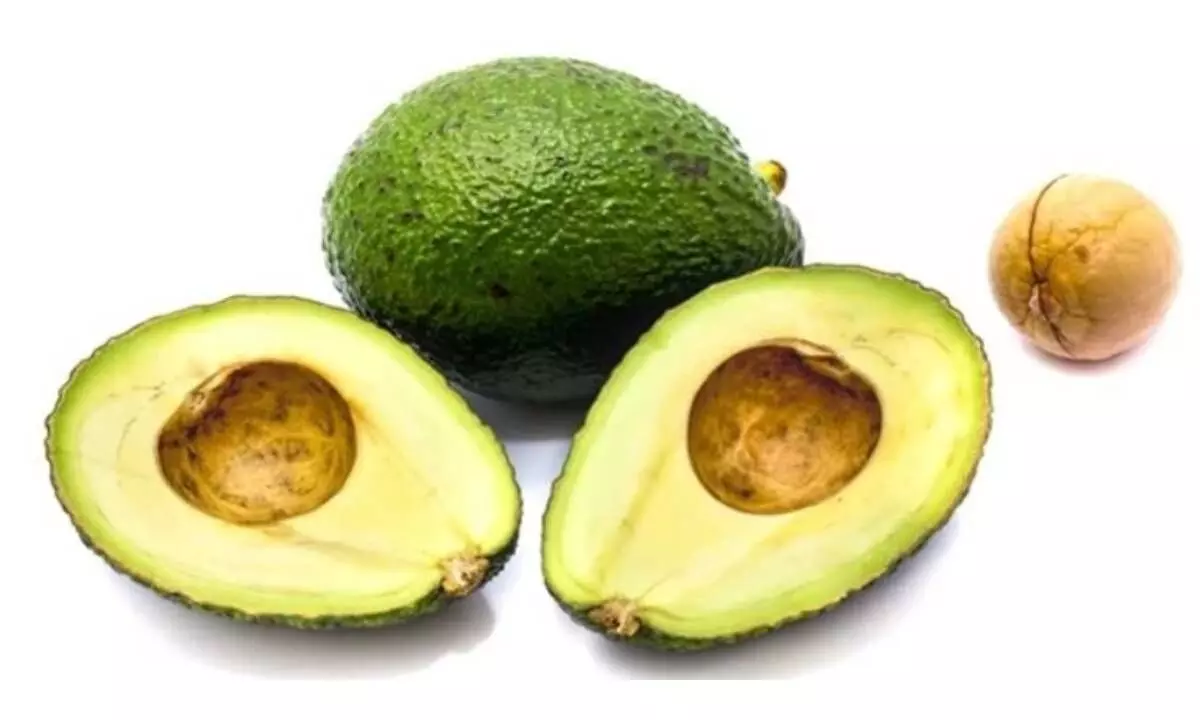Conquer obesity with the miraculous avocados
The World Health Organization (WHO) recognises obesity as a complex disease with health consequences and is linked to chronic conditions
image for illustrative purpose

The National Family Health Survey (NFHS-5) has come up with startling findings; 23% of men, 24% of women have high BMI while 3.4% of children under five years are overweight.
“Studies have shown that avocados can help lower cholesterol and reduce the risk of cardiovascular diseases,” says Zac Bard, chairman of World Avocado Organization (WAO).
"Obesity is a major health concern in India largely because of our sedentary lifestyles and faulty dietary habits. Incorporating avocados into the diet can help combat the epidemic. The combination of fiber, healthy fats, and nutrients in avocados contributes to higher satiety and better nutrition, and these, in turn, can aid in weight management,” says Kavita Devgan, a leading dietitian, holistic health consultant, and popular writer.
From the medical angle-Obesity is usually defined as having a body mass index (BMI) of 30 or above. BMI between 25 and 30 is classified as ‘overweight’.
It is more important than ever to remember that obesity continues to be a global worry, with one in five women and one in seven men forecast to be living with obesity by 2030, according to the World Obesity Federation.
Fighting obesity with avocados: Although it is widely observed that the risk level of becoming obese can be triggered by various factors such as genetic disorders and low physical activity, experts have also attributed an unhealthy diet as also one of the main causes of obesity. One way to make healthier food choices is to increase consumption of foods like fruit and vegetables and decrease intake of foods high in sugars and saturated fats, having a healthier diet filled with unsaturated fats, vitamins and minerals.
The World Health Organization (WHO) recognises obesity as a complex disease with health consequences and is linked to chronic conditions such as type 2 diabetes, cardiovascular diseases, high cholesterol levels and high blood pressure. The WHO observes that obesity continues to be a public health concern as the number of people who have obesity or are overweight continues to rise around the world.
Avocados are packed with essential minerals, bioactive compounds and C, E, K and B-group vitamins that improve human health and help to prevent many diseases such as metabolic syndrome (a combination of diabetes, high blood pressure and obesity). They supply more energy per kg than many other fruits and vegetables and contain high amounts of vitamins B, B2, B3 and B5 which help the body to break down and release energy from food. They are also low in sugar, have a low glycemic index (GI) and contain more potassium gram for gram than bananas!
An avocado is a bright green fruit with a large pit and dark leathery skin. They’re also known as alligator pears or butter fruit. Avocados are a favourite of the produce section.
In one study, people who added a half of a fresh avocado to their lunch were less interested in eating during the next three hours than those who didn’t have the fruit.
A healthy lifestyle that includes nutritious food can help prevent and reverse disease. The vitamins, minerals, and healthy fats you get from avocados help prevent disease and keep your body in good working order.
A standard serving of avocado may be just around 80 calories, but it contains a high amount of unsaturated fats that are widely considered to be beneficial to human health. Just one small portion of this unique fruit contains a whopping 5g of monounsaturated fats and 1g of polyunsaturated fat. These fatty acids can help reduce LDL cholesterol levels in the blood, which in return helps to reduce the risk of cardiovascular diseases such as heart attacks and strokes.
In a 2022 study conducted by the Journal of the American Heart Association, it was found that replacing a halfiserving of foods high in saturated fats (such as margarine, butter and cheese) with the equivalent amount of avocado was associated with a 16%-22% lower risk of cardiovascular disease. In addition, a series of studies, supported by the Avocado Nutrition Center, not only found that eating avocados can contribute to weight management and effectively increase the feeling of satiety after mealtime, but that it was also linked to a lower risk of becoming overweight or obese.

